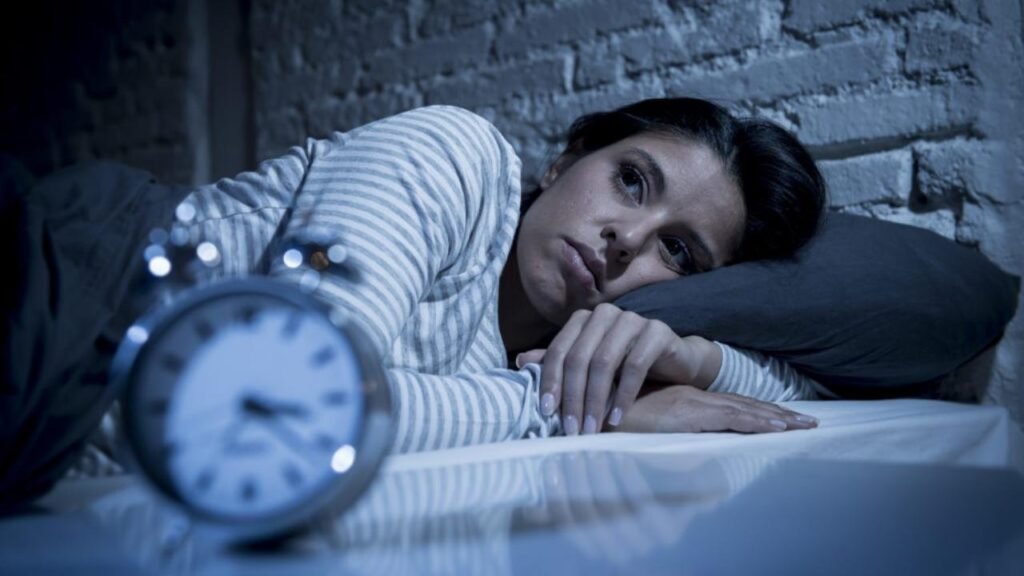In today’s fast-paced, always-on world, sleep often takes a backseat to busy schedules, screen time, and stress. Yet, sleep is one of the most vital components of overall health and well-being—on par with a balanced diet and regular exercise. Still, the question lingers in the minds of many: how much sleep do we really need?
The answer isn’t one-size-fits-all. It varies based on age, lifestyle, and even genetics. Whether you’re a teenager struggling to wake up for school, a busy adult juggling work and family, or a senior seeking restful nights, your sleep needs can differ significantly. And with so much conflicting advice online, it’s easy to feel confused about how much sleep you actually need to function at your best.
In this guide, we’ll break down the science of sleep, examine recommended sleep durations by age, and explore the factors that influence your personal sleep requirements. If you’ve ever wondered, “how much sleep do I really need?”—you’re in the right place.
Why Sleep Matters for Your Health
Sleep is not just a time of rest—it’s a critical process that allows your body and brain to recharge, repair, and function optimally. When you consistently get the right amount of quality sleep, nearly every system in your body benefits. On the other hand, chronic sleep deprivation can lead to a wide range of health problems.
🧠 Cognitive Function and Mental Health
Sleep plays a key role in memory consolidation, emotional regulation, and problem-solving. Without enough sleep, you may find it harder to focus, make decisions, or manage stress. Over time, poor sleep has been linked to mental health disorders such as anxiety and depression.
🦠 Immune Support
Your immune system relies on sleep to stay strong. During deep sleep, your body releases cytokines—proteins that help fight inflammation and infection. If you’re not getting enough rest, your immune response weakens, making you more vulnerable to illnesses.
❤️ Heart Health and Metabolism
Studies show that people who regularly sleep less than the recommended amount are at a higher risk of heart disease, stroke, diabetes, and obesity. Sleep affects hormones that regulate appetite and insulin sensitivity, meaning poor sleep can lead to weight gain and blood sugar imbalances.
⏳ Sleep Debt Adds Up
Even if you miss just a few hours of sleep a night, that “sleep debt” accumulates over time. You might try to catch up on weekends, but it rarely makes up for the long-term effects. This is why knowing how much sleep you really need and sticking to a consistent routine is crucial for long-term health.
Recommended Sleep Duration by Age Group
According to the CDC’s official sleep guidelines, the recommended sleep duration varies significantly by age, from 14–17 hours for newborns to 7–9 hours for most adults.
When it comes to sleep, your age plays a major role in determining how much you need. As we grow older, our bodies and brains go through significant changes that impact the ideal amount of rest. If you’ve been wondering, “how much sleep do I really need?” or “how many hours of sleep do I really need?”, the guidelines below offer a helpful starting point.
🕒 General Sleep Recommendations by Age
| Age Group | Recommended Sleep Duration |
|---|---|
| Newborns (0–3 months) | 14–17 hours |
| Infants (4–11 months) | 12–15 hours |
| Toddlers (1–2 years) | 11–14 hours |
| Preschoolers (3–5 years) | 10–13 hours |
| Children (6–13 years) | 9–11 hours |
| Teenagers (14–17 years) | 8–10 hours |
| Young Adults (18–25 years) | 7–9 hours |
| Adults (26–64 years) | 7–9 hours |
| Older Adults (65+ years) | 7–8 hours |
💡 Note: These are general recommendations. Your personal needs may vary depending on your health, activity level, and genetics.
Also Read: What Are the Different Types of Insomnia? Causes, Symptoms & Treatment in the UK
👶 Why Children and Teens Need More Sleep
Growing bodies and developing brains require more rest to support learning, memory, and physical development. Sleep deprivation in children and teenagers has been linked to behavior problems, academic struggles, and weakened immunity.
🧑 How Much Sleep Do Adults Actually Need?
For most healthy adults, 7 to 9 hours of sleep per night is ideal. But it’s not just about the number of hours—it’s about sleep quality too. If you’re waking frequently during the night or not reaching deep sleep stages, you may feel tired even after a full night’s rest.
👵 Sleep Needs in Older Adults
As we age, sleep patterns change. Many older adults experience lighter, shorter sleep and may wake up more frequently at night. While 7–8 hours is still recommended, the focus should also be on improving sleep quality.
Understanding your age-based sleep needs is the first step toward answering the bigger question: “how much sleep do we really need?” Up next, we’ll explore the lifestyle and health factors that affect your personal sleep requirement.
Factors That Influence How Much Sleep You Need
Research from Harvard Medical School shows that lifestyle, stress, and even genetics all influence how much sleep your body truly needs.
While age provides a baseline for sleep recommendations, it’s not the only factor at play. The amount of rest your body requires can also be shaped by your lifestyle, health, and even genetics. That’s why two people of the same age may have different answers to the question, “how much sleep do I really need?”
Let’s take a closer look at the key influences that affect how much sleep you actually need:
🏋️♂️ Physical Activity Level
If you’re highly active—whether you’re an athlete or just someone who exercises regularly—your body needs more time to recover. Physical exertion increases your need for restorative sleep, especially deep sleep, to rebuild muscle and replenish energy.
😟 Mental Health & Stress
Stress and anxiety can make it harder to fall and stay asleep. Ironically, these conditions also increase your body’s demand for sleep as it tries to regulate emotional health and cognitive function. Poor sleep and mental health often form a vicious cycle.
🤰 Hormonal Changes (e.g., Pregnancy, Menstruation, Menopause)
Hormonal fluctuations can significantly affect sleep. For example, pregnant women often require more sleep in the first trimester due to physical fatigue. Menopausal women may struggle with insomnia or disrupted sleep due to hot flashes or hormonal shifts.
🤧 Illness or Recovery
When you’re sick or recovering from surgery or injury, your body diverts more energy toward healing. This means you’ll likely need additional hours of sleep—and better quality sleep—for a faster recovery.
🧬 Genetics and Sleep Chronotypes
Some people are naturally night owls, while others function best as early birds. These tendencies, known as chronotypes, are genetically influenced and affect not only how much sleep you really need but also when you need it.
🌙 Lifestyle and Work Schedule
Shift workers, frequent travelers, and those with irregular schedules may find it harder to maintain healthy sleep patterns. Over time, these disruptions can lead to a misalignment of your natural sleep-wake cycle, increasing fatigue and reducing sleep efficiency.
Signs You’re Not Getting Enough Sleep
Even if you’re hitting the “recommended” hours each night, poor sleep quality or disrupted rest can still leave you feeling exhausted. So, how do you know if you’re truly getting the sleep your body needs?
Whether you’re asking “how much sleep do I really need?” or “am I getting enough rest to function well?”, these warning signs can help you spot the symptoms of sleep deprivation.
😴 Constant Daytime Fatigue
Feeling tired even after a full night’s sleep is one of the clearest indicators that you’re not getting restorative sleep. If you rely on caffeine just to get through the day or struggle to stay awake in meetings, your body may be missing out on deep sleep stages.
😠 Mood Swings and Irritability
Lack of sleep directly affects emotional regulation. People who don’t sleep enough are more prone to mood swings, anxiety, and even symptoms of depression. You might find yourself more reactive, less patient, or unusually sensitive.
🧠 Brain Fog and Poor Concentration
Memory lapses, difficulty focusing, and slow decision-making are all cognitive symptoms of inadequate sleep. If you often feel mentally “foggy,” it’s time to reassess how much sleep you actually need to operate at your best.
🍕 Unhealthy Cravings and Weight Gain
Sleep regulates hormones like leptin and ghrelin, which control hunger and satiety. When you’re sleep-deprived, your body craves high-carb and sugary foods, leading to poor eating habits and weight gain.
🤒 Weakened Immune System
Frequent colds or infections may be your body’s way of signaling that it’s not getting the rest it needs. Sleep is critical for immune repair and inflammation control.
Can You Sleep Too Much?
While it may seem harmless, Mayo Clinic warns that consistently sleeping more than 9–10 hours per night could point to an underlying health condition.
We often hear about the dangers of sleep deprivation, but what about the opposite end of the spectrum? Is it possible to get too much sleep? Surprisingly, yes. While it’s tempting to assume more rest equals better health, excessive sleep can also signal underlying problems and lead to its own set of health risks.
🛏️ What Is Oversleeping?
Oversleeping is generally defined as sleeping more than 9–10 hours per night on a regular basis—particularly for adults who are otherwise healthy. While occasional long sleeps after an exhausting week or illness are normal, consistent oversleeping may indicate something deeper.
😞 Mental Health and Hypersomnia
One common cause of oversleeping is a condition called hypersomnia, where individuals experience excessive sleepiness even after long periods of rest. It’s often linked to depression, anxiety, and other mental health disorders. People with hypersomnia may also struggle to stay awake during the day despite sleeping for extended hours at night.
❤️ Health Risks Associated with Too Much Sleep
Research has shown that chronic oversleeping is associated with:
- Increased risk of heart disease
- Higher rates of obesity and diabetes
- Cognitive decline in older adults
- Increased inflammation in the body
Just like sleep deprivation, sleeping too much can negatively impact your physical and mental health over time.
⚖️ Finding the Right Balance
Ultimately, it’s not just about how long you sleep, but how restorative your sleep is. If you’re still feeling tired after 9+ hours of rest, it’s time to assess your sleep quality, lifestyle, or consult a doctor. Sometimes, the real question isn’t “how much sleep do I really need?”—it’s “am I sleeping well?”
How to Determine Your Personal Sleep Needs
Everyone’s body is different—so while general guidelines offer a helpful starting point, the true answer to “how much sleep do I really need?” lies in understanding your individual lifestyle, biology, and health patterns.
Here’s how you can tune into your own sleep requirements:
📊 Track Your Sleep Patterns
Start by monitoring your sleep over a week or two. Use a sleep diary or app to log:
- What time you go to bed and wake up
- How long it takes you to fall asleep
- How many times you wake up at night
- How you feel the next day (alert, groggy, energized)
This will give you a clearer picture of how much sleep you actually need to feel your best.
🌙 Go to Bed Without an Alarm (if possible)
If your schedule allows, try sleeping and waking naturally for several nights in a row. After a few days of catching up on any sleep debt, your body will begin to show you its preferred duration. Many people discover they naturally gravitate toward 7.5 to 9 hours per night.
🧪 Experiment and Observe
Try adjusting your bedtime by 15–30 minutes over several nights and observe how it affects your mood, energy, and focus. Once you find the sweet spot, make it your regular target.
🧘 Pay Attention to Quality, Not Just Quantity
Even if you’re getting 8 hours of sleep, poor quality (due to snoring, sleep apnea, stress, etc.) can leave you feeling tired. Make sure your sleep is:
- Uninterrupted
- Deep (not just light stages)
- Consistent in timing (same bed/wake times daily)
⚠️ Watch for Red Flags
If you need frequent naps, feel constantly fatigued, or notice mood and focus issues—even with long sleep durations—it may be time to consult a sleep specialist. Medical conditions like insomnia, sleep apnea, restless legs syndrome, or depression could be at play.
Tips for Getting the Right Amount of Quality Sleep
Knowing how much sleep you really need is only the first step—building habits that support high-quality rest is what truly makes the difference. Whether you’re struggling with sleep deprivation or trying to optimize your nightly routine, these science-backed tips can help.
🕗 1. Stick to a Consistent Sleep Schedule
Go to bed and wake up at the same time every day—even on weekends. This reinforces your body’s natural circadian rhythm and improves sleep quality over time.
📵 2. Limit Screen Time Before Bed
The blue light from phones, tablets, and TVs can disrupt melatonin production and trick your brain into thinking it’s still daytime. Try to unplug at least an hour before bed, or use blue light filters.
🌡️ 3. Create a Sleep-Friendly Environment
Set up a cool, dark, and quiet room. Consider blackout curtains, earplugs, or a white noise machine if needed. A calming bedroom helps you fall asleep faster and stay asleep longer.
🍵 4. Watch What You Eat and Drink
Avoid caffeine, heavy meals, and alcohol close to bedtime. These can interfere with your ability to fall and stay asleep. Instead, opt for a light snack like a banana or a cup of chamomile tea if you’re hungry.
🧘 5. Develop a Relaxing Bedtime Routine
Wind down with calming activities like reading, light stretching, journaling, or meditation. Training your brain to associate certain behaviors with bedtime can improve sleep onset.
🚫 6. Avoid Oversleeping
It may be tempting to sleep in after a rough night, but regularly oversleeping can throw off your internal clock. Once you find your ideal sleep duration—usually 7–9 hours for adults—try to stick to it consistently.
🏥 7. Know When to Seek Help
If you still feel tired after adjusting your routine—or if you’re sleeping more than 9 hours and still not feeling refreshed—consult a healthcare provider. Conditions like sleep apnea or insomnia may be interfering with your rest.
Conclusion: So, How Much Sleep Do We Really Need?
The truth is, there’s no universal answer to “how much sleep do we really need?” While age-based guidelines are a helpful reference, your ideal amount of sleep depends on your unique lifestyle, biology, and overall health. Most healthy adults thrive with 7 to 9 hours per night, but the real goal is to wake up feeling refreshed, focused, and energized.
By tracking your sleep, observing how you feel, and creating supportive habits, you’ll discover not only how much sleep you actually need, but how to make each night truly restorative.
Also Read: How to Overcome Chronic Insomnia: 7 Evidence-Based Strategies That Actually Work





